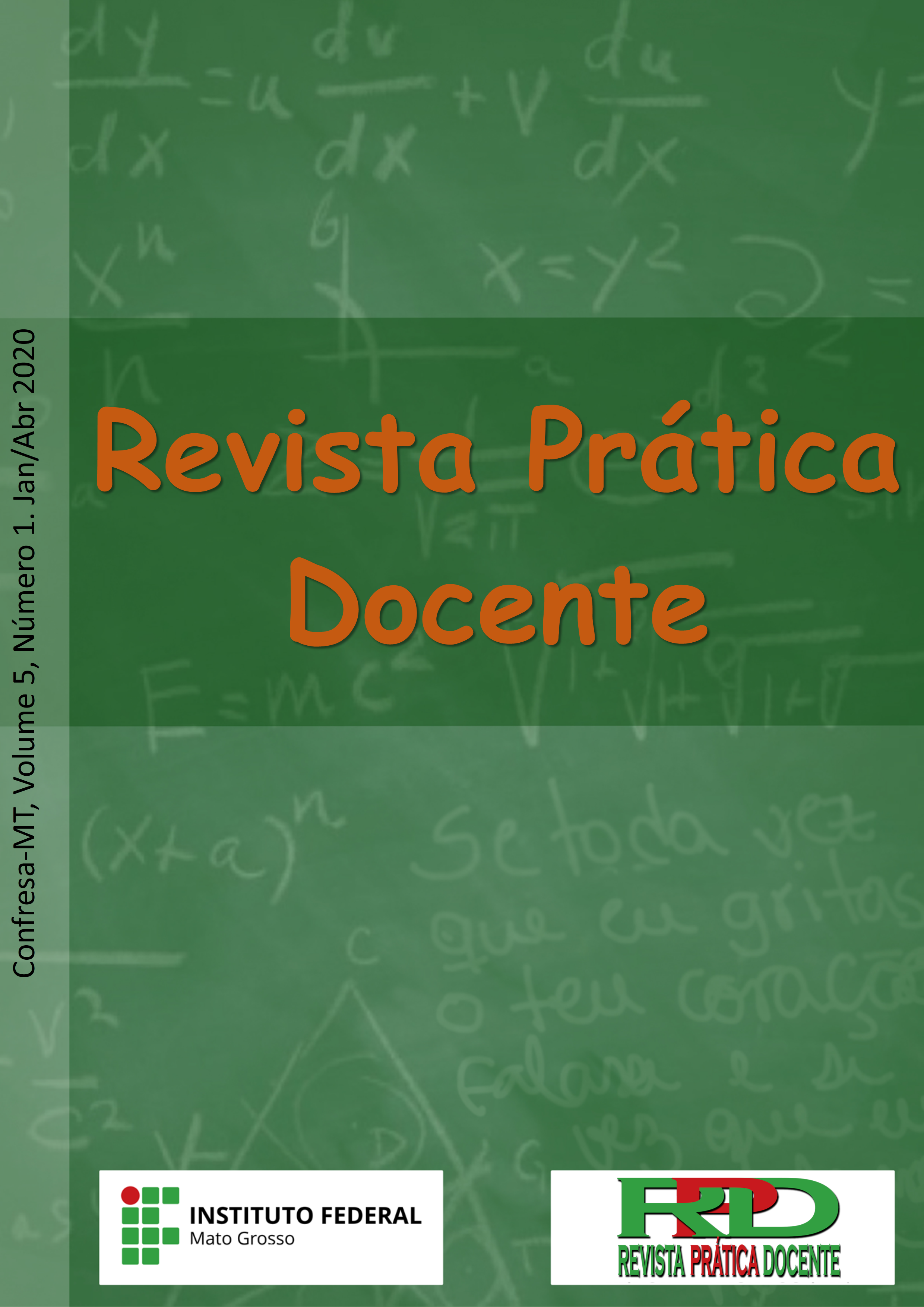GAMIFICATION IN THE CLASSROOM: ASSESSMENT OF MOTIVATION USING THE ARCS QUESTIONNAIRE
DOI:
10.23926/RPD.2526-2149.2020.v5.n1.p374-390.id632Keywords:
Gamification, Motivation, ARCS, Physics educationAbstract
This article presents a research cut of a stricto sensu postgraduate. Its purpose is to investigate the quality of motivation provided by gamification in geometric optics classes, a branch of Physics. Regarding the methodological aspects, a case study was carried out with 16 students. In assessing motivation, the Instructional Materials Motivation Scale (IMMS), proposed by John Keller in the ARCS motivation model (Attention, Relevance, Confidence, Satisfaction), was used. The results showed a high percentage of agreement in the four categories, revealing that the students were more self-confident, as they realized that they were progressing through their own effort, and were satisfied with completing the proposed missions. That said, it is possible to conclude that the gamification of the classroom provided sufficient empirical evidence to attest that its implementation motivated the students.
Downloads
Metrics
References
BUSARELLO, Raul Inácio.Gamification: princípios e estratégias. 1. ed. São Paulo: Pimenta Cultural, 2016.
DETERDING, Sebastian. et al. From game design elements to gamefulness: defining “gamification”. In: MindTrek '11: Proceedings of the 15th International Academic MindTrek Conference: Envisioning Future Media Environments, 15, 2011, Tampere. Proceedings... New York: Acm, 2011. p. 9 - 15. DOI: https://doi.org/10.1145/2181037.2181040.
DOMÍNGUEZ, Adrián. et al. Gamifying learning experiences: practical implications and outcomes. Computers and Education, v. 63, p. 380-392, 2013. DOI: https://doi.org/10.1016/j.compedu.2012.12.020.
FARDO, Marcelo Luís. A gamificação como estratégia pedagógica: estudo de elementos dos games aplicados em processos de ensino e aprendizagem. Dissertação (Mestrado) – Programa de Pós-Graduação em Educação, Universidade de Caxias do Sul, Caxias do Sul, 2013.
HAMARI, Juho.; KOIVISTO, Jonna.; SARSA, Harri. Does Gamification Work? A Literature Review of Empirical Studies on gamification. In: INTERNATIONAL CONFERENCE ON SYSTEM SCIENCES, 47, 2014, Hawaii. Proceedings... New York: IEEE, 2014. p. 3025-3034. DOI: https://doi.org/10.1109/HICSS.2014.377.
JEWETT, John; SERWAY, Raymond. Física para cientistas e engenheiros. 8 ed. São Paulo: Cengage Learning, 2012. v. 4.
KAPP, Karl. The Gamification of Learning and Instruction: Game-based Methods and Strategies for Training and Education. Pfeifer, Wiley USA, 2012.
KELLER, John. Motivational Design for Learning and Performance: The ARCS Model Approach. Springer, 2009.
KAMINSKI, Márcia Regina; SILVA, Denis Antônio; BOSCARIOLI, Clodis. Integrando Educomunicação e gamificação como estratégia para ensinar sustentabilidade e alimentação saudável no 5º ano do Ensino Fundamental. Revista Prática Docente. v. 3, n. 2, p. 595-609, 2018. DOI: http://dx.doi.org/10.23926/RPD.2526-2149.2018.v3.n2.p595-609.id259.
MCGONIGAL, Jane. Reality is broken: why games make us better and how they can change the world. Nova Iorque: The Penguin Press, 2011.
MOREIRA, Marco Antônio. Grandes desafios para o ensino da Física na educação contemporânea. Revista do Professor de Física, v.1, n. 1, p.1-13, 2017. Disponível em: http://periodicos.unb.br/index.php/rpf/article/view/25190. Acesso em: 01 abril. 2018.
MULLER, Maykon Gonçalves; ARAUJO, Ives Solano; VEIT, Eliane Angela; SCHELL, Julie. Uma revisão da literatura acerca da implementação da metodologia interativa de ensino Peer Instruction (1991 a 2015). Revista Brasileira de Ensino de Física, v. 39, n. 3, e3403, 2017. DOI: https://doi.org/10.1590/1806-9126-rbef-2017-0012.
POFFO, Marcio. Utilização da gamificação para motivar a aprendizagem: um estudo de caso em engenharia de software. Dissertação (Mestrado) – Programa de Pós-Graduação em Computação, Universidade do Vale do Itajaí, 2016.
SALES, Gilvandenys Leite; CUNHA, Joana Laysa Lima; GONÇALVES, Alexandra Joca; SILVA, João Batista; SANTOS, Rubens Lopes. Gamificação e ensinagem híbrida na sala de aula de física: metodologias ativas aplicadas aos espaços de aprendizagem e na prática docente. Revista Conexões: ciência e tecnologia, v. 11, n. 2, p. 45 - 52, 2017. Disponível em: http://conexoes.ifce.edu.br/index.php/conexoes/article/view/1181. Acesso em: 02 jun. 2017. DOI: https://doi.org/10.21439/conexoes.v11i2.1181.
SAVI, Rafael. Avaliação de jogos voltados para a disseminação do conhecimento. Tese (Doutorado) – Programa de Pós-Graduação em Engenharia e Gestão do Conhecimento, Universidade Federal de Santa Catarina, Florianópolis, 2011.
SILVA, João Batista; ANDRADE, Maria Helena; OLIVEIRA, Rannyelly Rodrigues; SALES, Gilvandenys Leite; ALVES, Francisco Regis Vieira. Tecnologias digitais e metodologias ativas na escola: o contributo do Kahoot para gamificar a sala de aula. Revista Thema, v. 15, n. 2, p. 780-791, 2018. Disponível em: http://revistathema.ifsul.edu.br/index.php/thema/article/view/838. Acesso em: 24 maio 2018. DOI: http://dx.doi.org/10.15536/thema.15.2018.780-791.838.
SILVA, João Batista; SALES, Gilvandenys Leite. Gamificação aplicada no ensino de Física: um estudo de caso no ensino de óptica geométrica. Revista Acta Scientiae, v. 19, n. 5, p. 782 - 798, 2017a. Disponível em : http://www.periodicos.ulbra.br/index.php/acta/article/view/3174. Acesso em: 20 jun. 2019.
SILVA, João Batista; SALES, Gilvandenys Leite. Um panorama da pesquisa nacional sobre gamificação no ensino de Física. Tecnia: Revista de Educação, Ciência e Tecnologia do IFG, v. 2, n. 1, p. 105-121, 2017b. Disponível em: http://revistas.ifg.edu.br/tecnia/article/view/172. Acesso em: 30 jun. 2019.
TODA, Armando Maciel; SILVA, Alan Pedro; ISOTANI, Seiji. Desafios para o planejamento e implantação da gamificação no contexto educacional. Revista Novas Tecnologias na Educação - RENOTE, v. 15, n. 2, 2017. Disponível em: http://seer.ufrgs.br/index.php/renote/article/view/79263. Acesso em: 20 jun. 2019.
TOLENTINO, Analyn; ROLEDA, Lydia. Learning Physics the Gamified Way. In: THE DLSU RESEARCH CONGRESS, 1, 2017, Manila. Proceedings... Philippines: DLSU, 2017, p. 1-6. Disponível em: http://www.dlsu.edu.ph/conferences/dlsu-research-congress-proceedings/2017/LLI/LLI-I-019.pdf. Acesso em: 20 mai. 2019.
VIANNA, Ysmar; VIANNA, Maurício.; MEDINA, Bruno.; TANAKA, Samara. Gamification, Inc.: como reinventar empresas a partir de jogos. Rio de Janeiro: MJV Press, 2013.
YIN, Robert. K. Estudo de caso. Planejamento e métodos. Porto Alegre: Bookman, 2001.
ZICHERMANN, Gabe; CUNNINGHAM, Christopher. Gamification by Design. Implementing Game Mechanics in Web and Mobile Apps. Canada: O’Reilly Media, 2011.
Downloads
Published
How to Cite
Issue
Section
License
Copyright (c) 2023 A Revista Prática Docente tem o direito de primeira publicação

This work is licensed under a Creative Commons Attribution-NonCommercial 4.0 International License.
Authors who publish in this journal agree to the following terms:
- Authors retain the copyright and grant the journal the right of first publication, with the paper simultaneously licensed under the Licença Creative Commons Attribution allows the sharing of the work with acknowledgment of authorship and initial publication in this journal.
- Authors are authorized to take additional contracts separately, for non-exclusive distribution of the version of the work published in this journal (e.g. publish in institutional repository or as a book chapter), with acknowledgment of authorship and initial publication in this journal.











